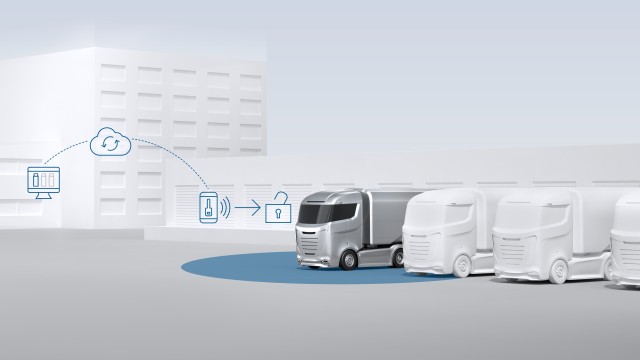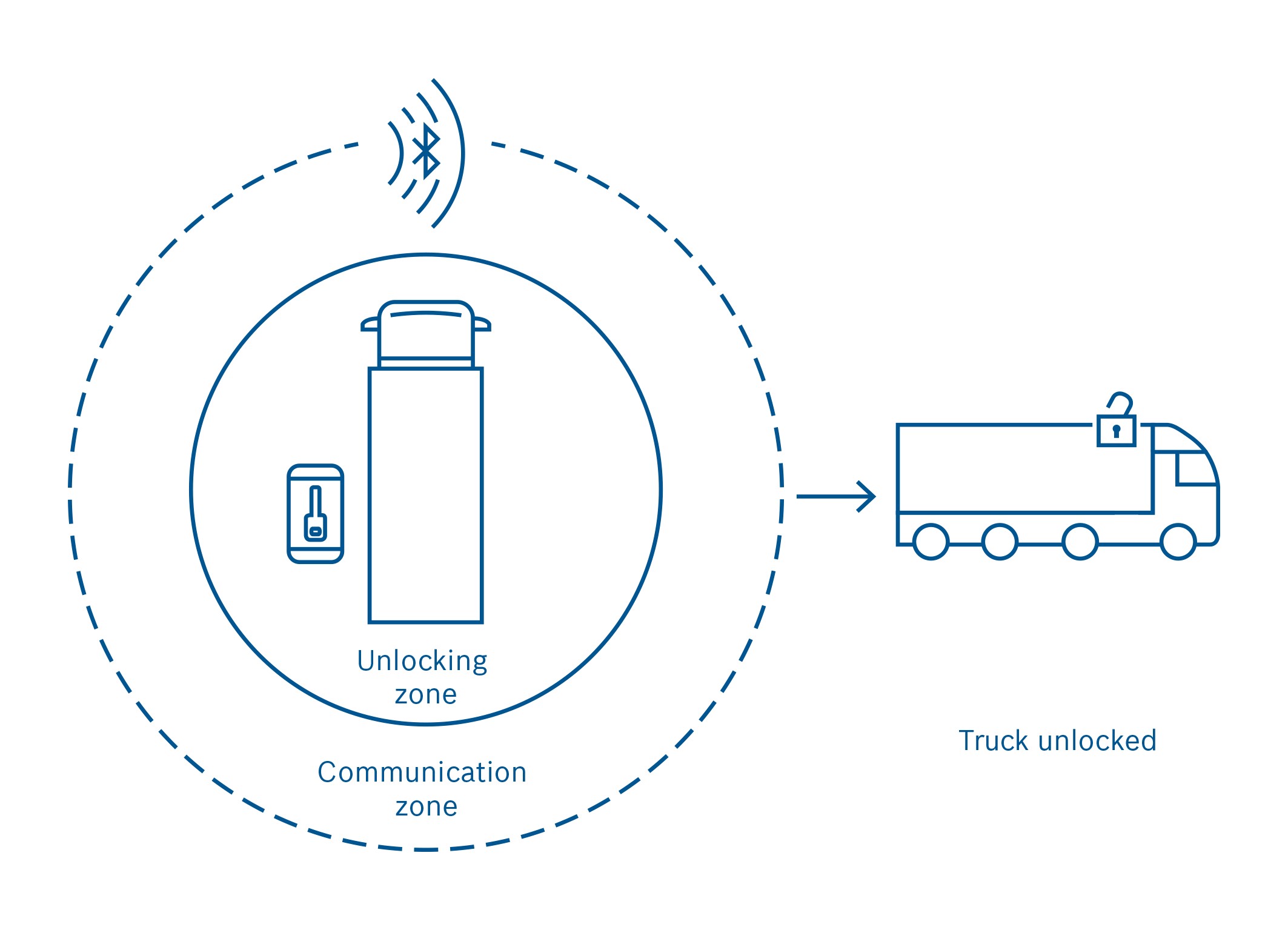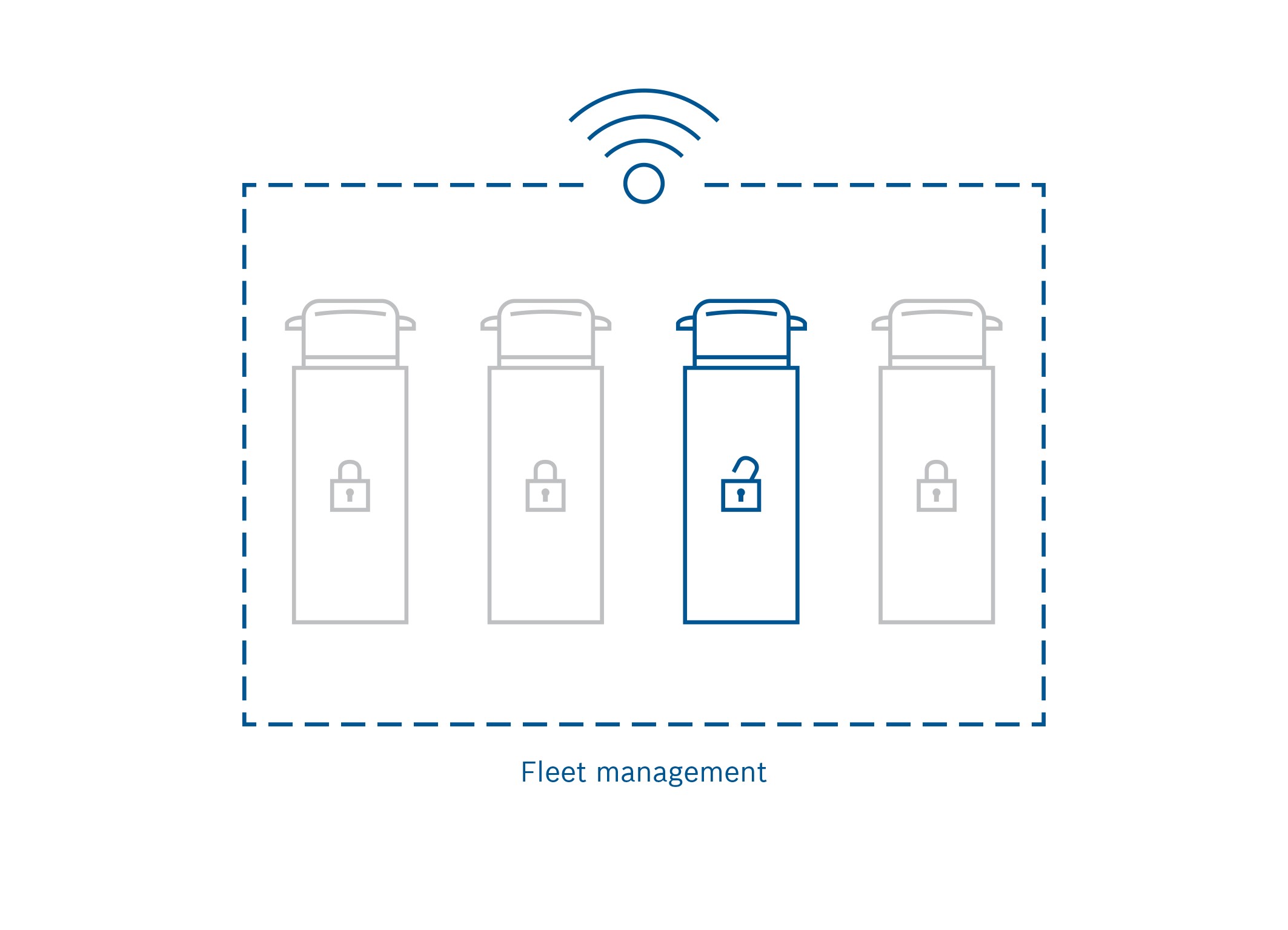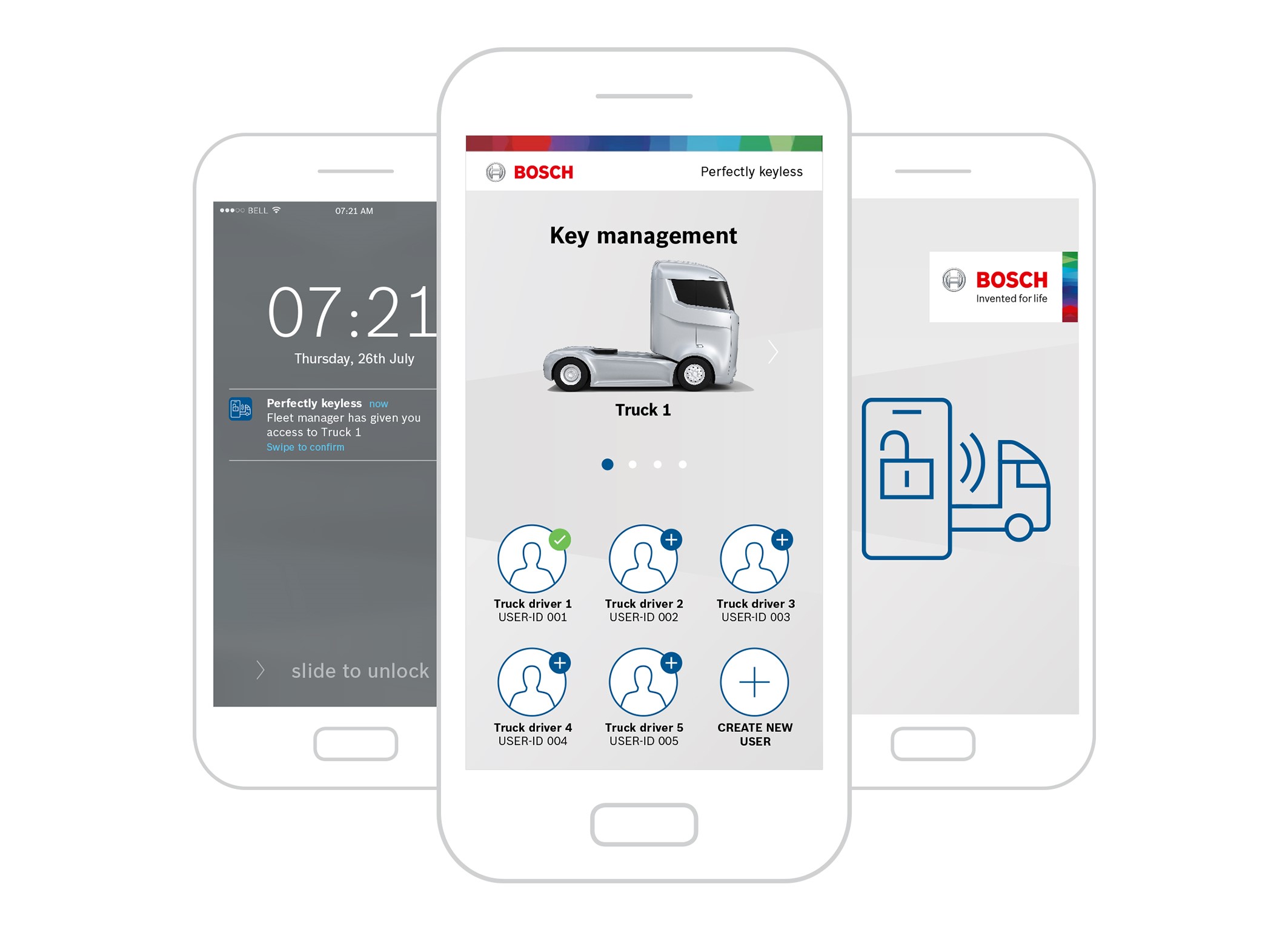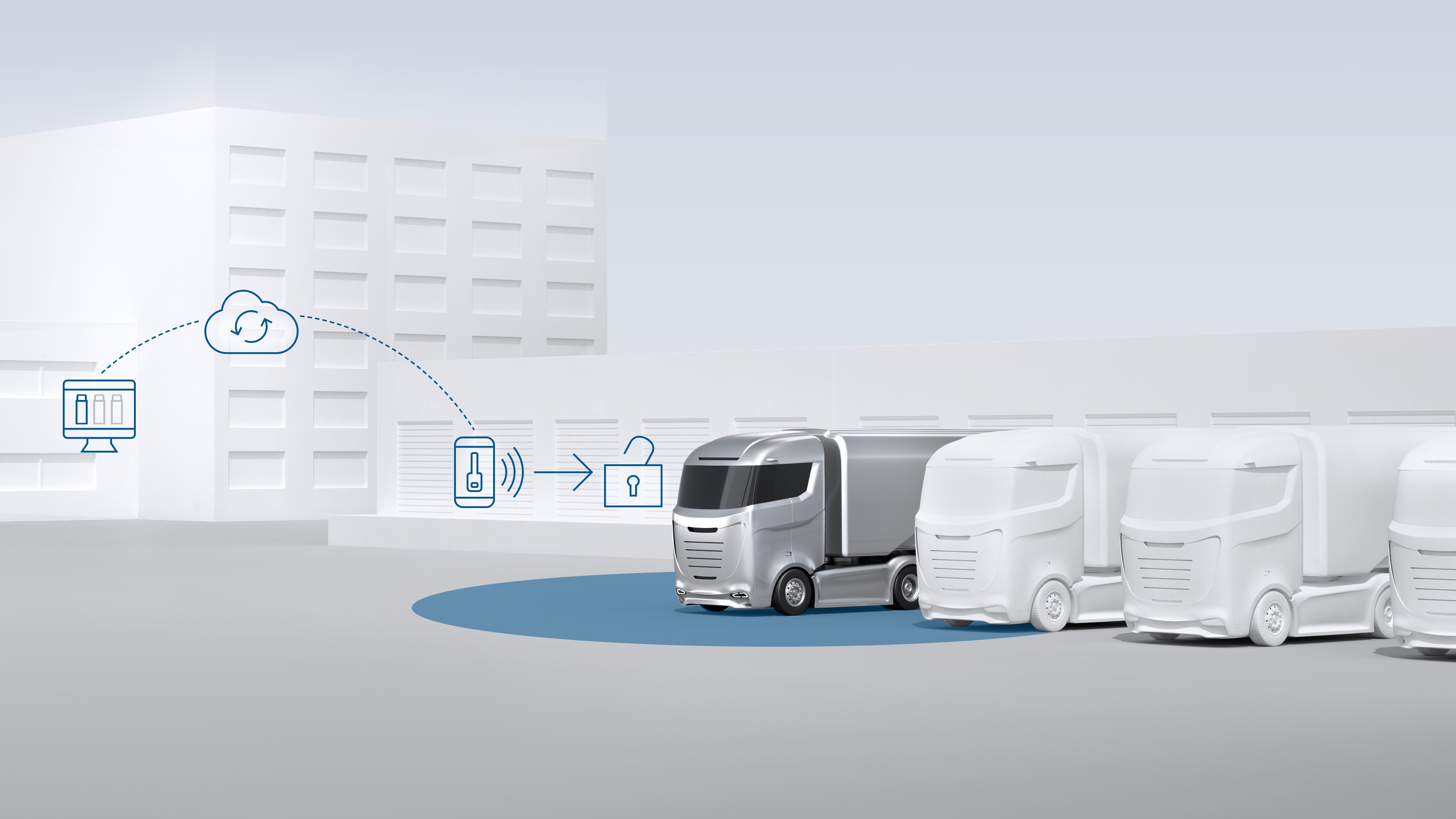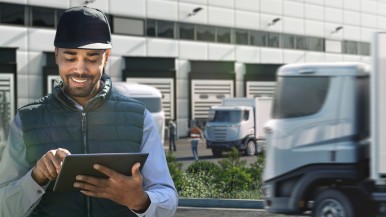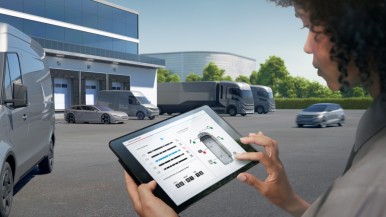Stuttgart, Germany – The key of the future is digital, and offers more features than its analog predecessors: impossible to lose or steal, there is never a need to search for it. That is because it is stored securely and specifically for each user in a smartphone app. “Our Perfectly Keyless app is making conventional vehicle keys a thing of the past. Bosch is taking the car key into the digital realm and making it available anywhere, anytime,” says Harald Kröger, president of the Bosch Automotive Electronics division. With Perfectly Keyless, the smartphone replaces the analog vehicle key. This concept can offer owners of private vehicles increased convenience, but where it really shines is in vehicle fleets with multiple drivers. No more key handovers: fleet managers and logistics providers simply use the app to give drivers access to the vehicles. “Bosch’s digital vehicle key gives fleets a boost towards greater connectivity,” Kröger says. The company believes there is a huge market for its solution, which is making its world debut at the IAA Commercial Vehicles in Hannover: potential customers include some 15,000 logistics providers in Germany alone. Most of them manage at least a dozen vehicles and drivers.
BOSCH AT THE IAA COMMERCIAL VEHICLES 2018
- Press conference: Wednesday, September 19, 2018, from 1:20 p.m. to 1:40 p.m., with Dr. Rolf Bulander, chairman of the Mobility Solutions business sector, and Dr. Markus Heyn, Member of the Board of Management, Robert Bosch GmbH, at the Bosch booth A01 in Hall 16.
- Follow the Bosch IAA 2018 highlights on www.bosch-iaa.com or on Twitter: #BoschIAA
- Panels with Bosch experts at the New Mobility World Forum, pavilion 11, section D:
- Wednesday, September 26, 10:00 a.m. – 11:00 a.m.: Presentation “The enhancement of automated driving (and AI)” with Johannes-Jörg Rüger, head of the Commercial Vehicle and Off- Road unit
- Thursday, September 27, 11:15 a.m. – 12:15 p.m.: Panel discussion “Aftermarket – more than just repair and maintenance”
- Thursday, September 27, 2:30 p.m. – 3:30 p.m.: Presentation and discussion “Masters of digitalization: digitizing businesses and mobility ecosystems” with Dr. Rainer Kallenbach, president of the Connected Mobility Solutions division
About Bosch
Bosch has been present in Belgium since 1907. The Bosch Group employs approximately 1,150 associates in Belgium. The main sites are located in Tienen, Anderlecht and Mechelen.
The Bosch Group is a leading global supplier of technology and services. It employs roughly 417,900 associates worldwide (as of December 31, 2024). According to the pre-liminary figures, the company generated sales of 90.5 billion euros in 2024. Its operations are divided into four business sectors: Mobility, Industrial Technology, Consumer Goods, and Energy and Building Technology. With its business activities, the company aims to use technology to help shape universal trends such as automation, electrification, digitalization, connectivity, and an orientation to sustainability. In this context, Bosch’s broad diversification across regions and industries strengthens its innovativeness and robustness. Bosch uses its proven expertise in sensor technology, software, and services to offer customers cross-domain solutions from a single source. It also applies its expertise in connectivity and artificial intelligence in order to develop and manufacture user-friendly, sustainable products. With technology that is “Invented for life,” Bosch wants to help improve quality of life and conserve natural resources. The Bosch Group comprises Robert Bosch GmbH and its roughly 470 subsidiary and regional companies in over 60 countries. Including sales and service partners, Bosch’s global manufacturing, engineering, and sales network covers nearly every country in the world. Bosch’s innovative strength is key to the company’s further development. At 136 locations across the globe, Bosch employs some 86,900 associates in research and development, of which roughly 48,000 are software engineers.
The company was set up in Stuttgart in 1886 by Robert Bosch (1861–1942) as “Workshop for Precision Mechanics and Electrical Engineering.” The special ownership structure of Robert Bosch GmbH guarantees the entrepreneurial freedom of the Bosch Group, making it possible for the company to plan over the long term and to undertake significant upfront investments in the safeguarding of its future. Ninety-four percent of the share capital of Robert Bosch GmbH is held by Robert Bosch Stiftung GmbH, a charitable foundation. The remaining shares are held by Robert Bosch GmbH and by a corporation owned by the Bosch family. The majority of voting rights are held by Robert Bosch Industrietreuhand KG, an industrial trust. It is entrusted with the task of safeguarding the company’s long-term existence and in particular its financial independence – in line with the mission handed down in the will of the company’s founder, Robert Bosch.
Additional information is available online at www.bosch-press.be, www.bosch.be, www.bosch.com, www.iot.bosch.com, www.twitter.com/BoschBelgium, www.linkedin.com/company/bosch-belgium/ and YouTube: Bosch Belgium

